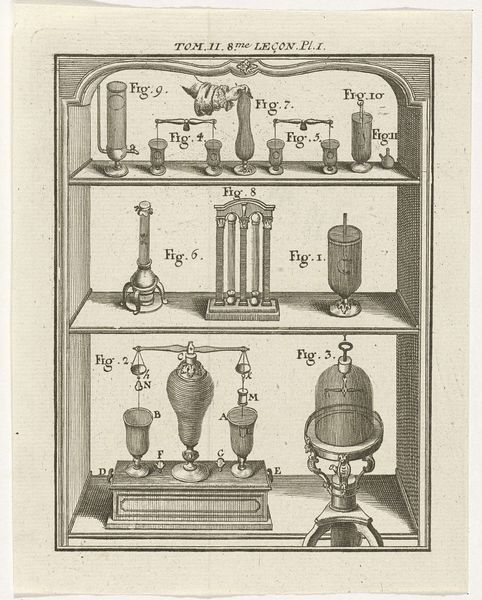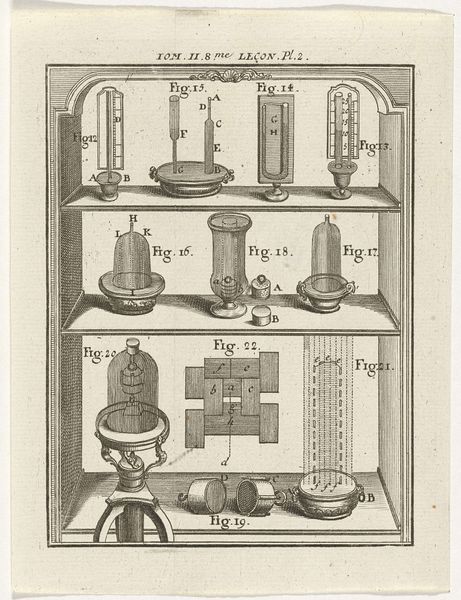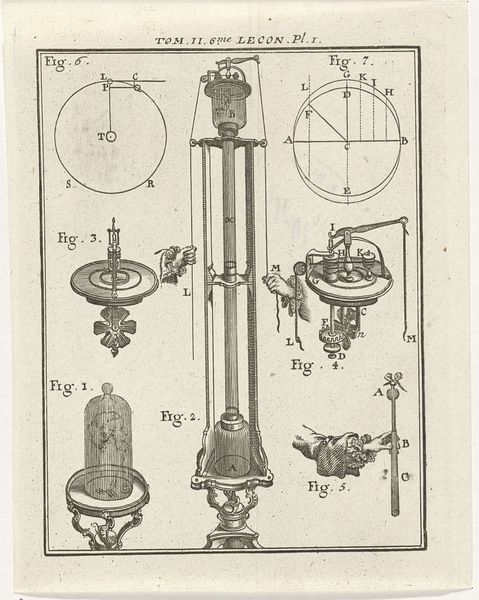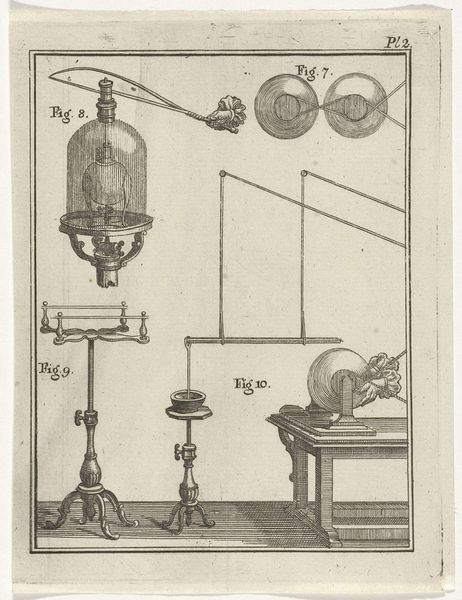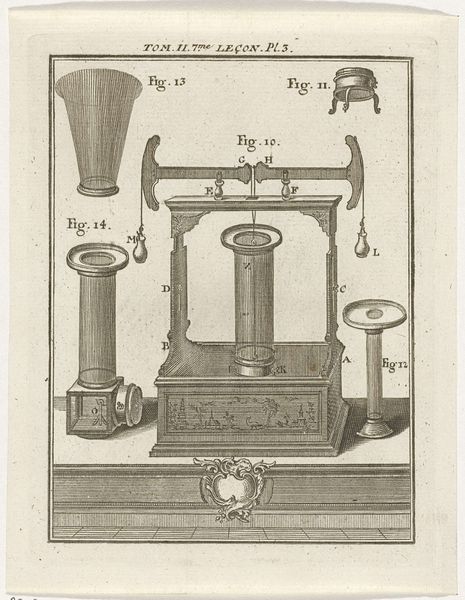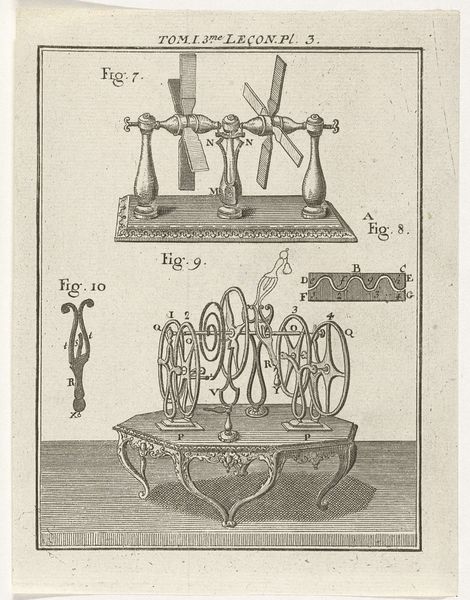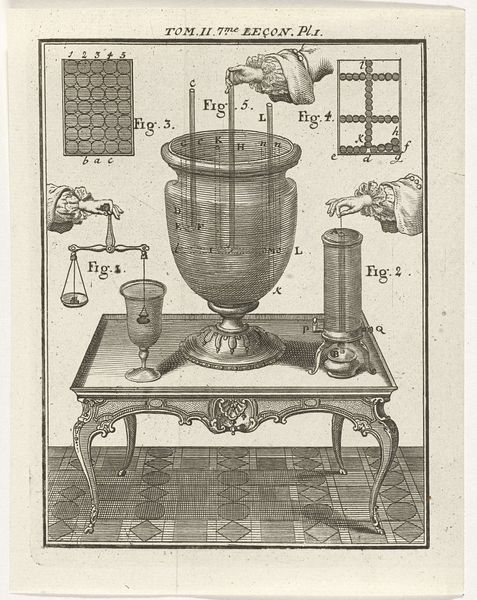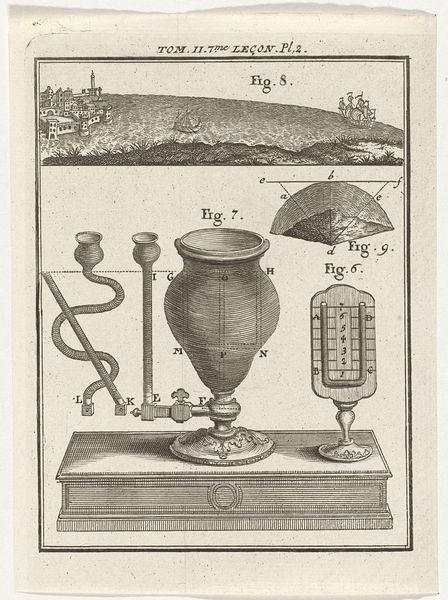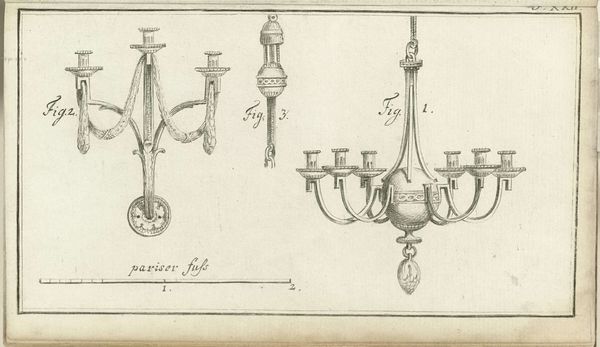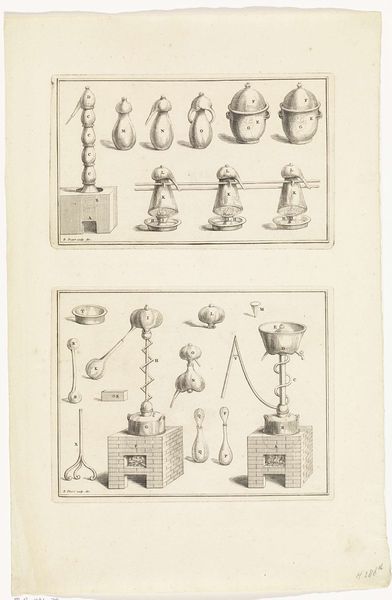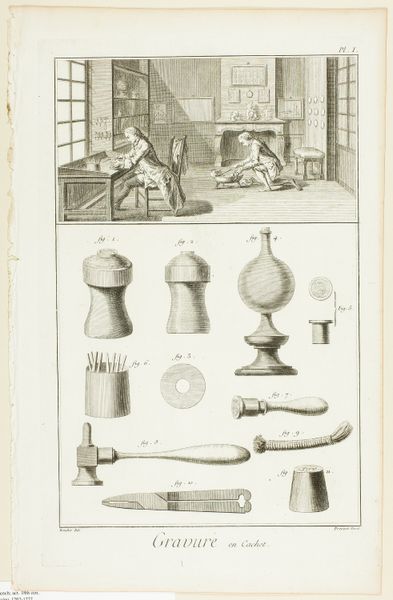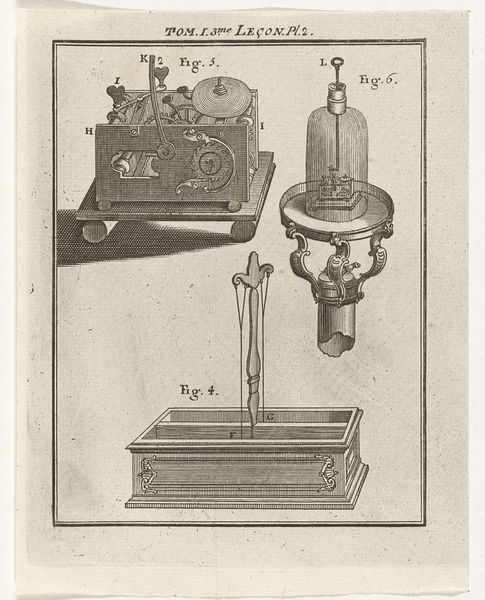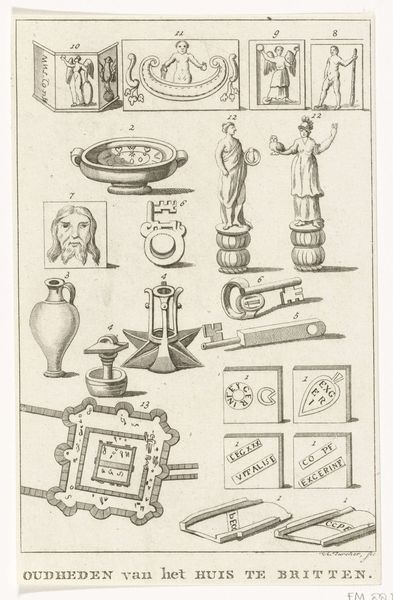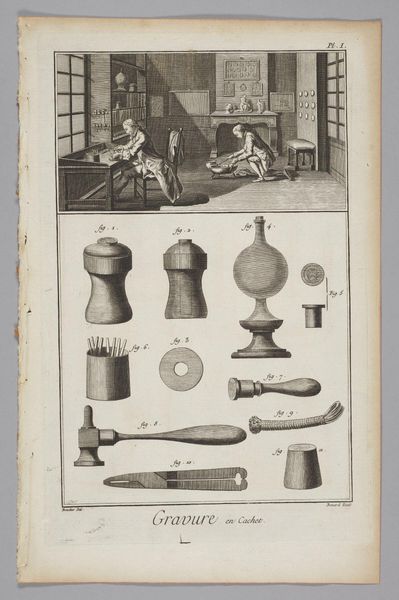
print, engraving
#
baroque
#
mechanical pen drawing
# print
#
old engraving style
#
history-painting
#
engraving
Dimensions: height 167 mm, width 119 mm
Copyright: Rijks Museum: Open Domain
Editor: This is "Natuurkundige instrumenten," or "Physics Instruments," an engraving made in 1759 by Nicolaas van Frankendaal, now at the Rijksmuseum. It's a very precise depiction of these objects, but somehow also feels rather surreal, like a collection of alchemical tools. What stands out to you in this piece? Curator: The "surreal" quality you observe speaks volumes about our present relationship to scientific authority. Consider the Enlightenment context: the engraving embodies an optimistic faith in empirical observation and the power of reason, visualizing the concrete instruments that supposedly unlock nature's secrets. However, the depicted instruments—intended to make the invisible visible—were available only to the elite. Editor: So the pursuit of knowledge wasn’t democratized, despite the Enlightenment’s ideals? Curator: Precisely. This image inadvertently exposes the social hierarchies inherent in the scientific revolution. The "objective" knowledge produced through these instruments reinforced existing power structures, solidifying class divisions and contributing to colonial exploitation. Notice the hand appearing in a few of the illustrations. Editor: It seems to be manipulating the device. Curator: Whose hand is it? It is carefully and neutrally posed. I see, though, its inclusion calls attention to who is actively investigating science while the rest of the world awaits findings, often to be kept separate. Editor: That's fascinating! I hadn’t considered that science itself could reflect and reinforce power imbalances. I see it now; while appearing neutral on the surface, it represents knowledge controlled by a select group. Curator: Exactly. It prompts us to question whose perspectives are privileged and whose are marginalized in the pursuit of knowledge. It reminds us that supposedly objective endeavors like science are always shaped by social and political forces. Editor: Thank you for offering a very critical, culturally informed viewpoint! I’ll never see scientific illustrations quite the same way.
Comments
No comments
Be the first to comment and join the conversation on the ultimate creative platform.
